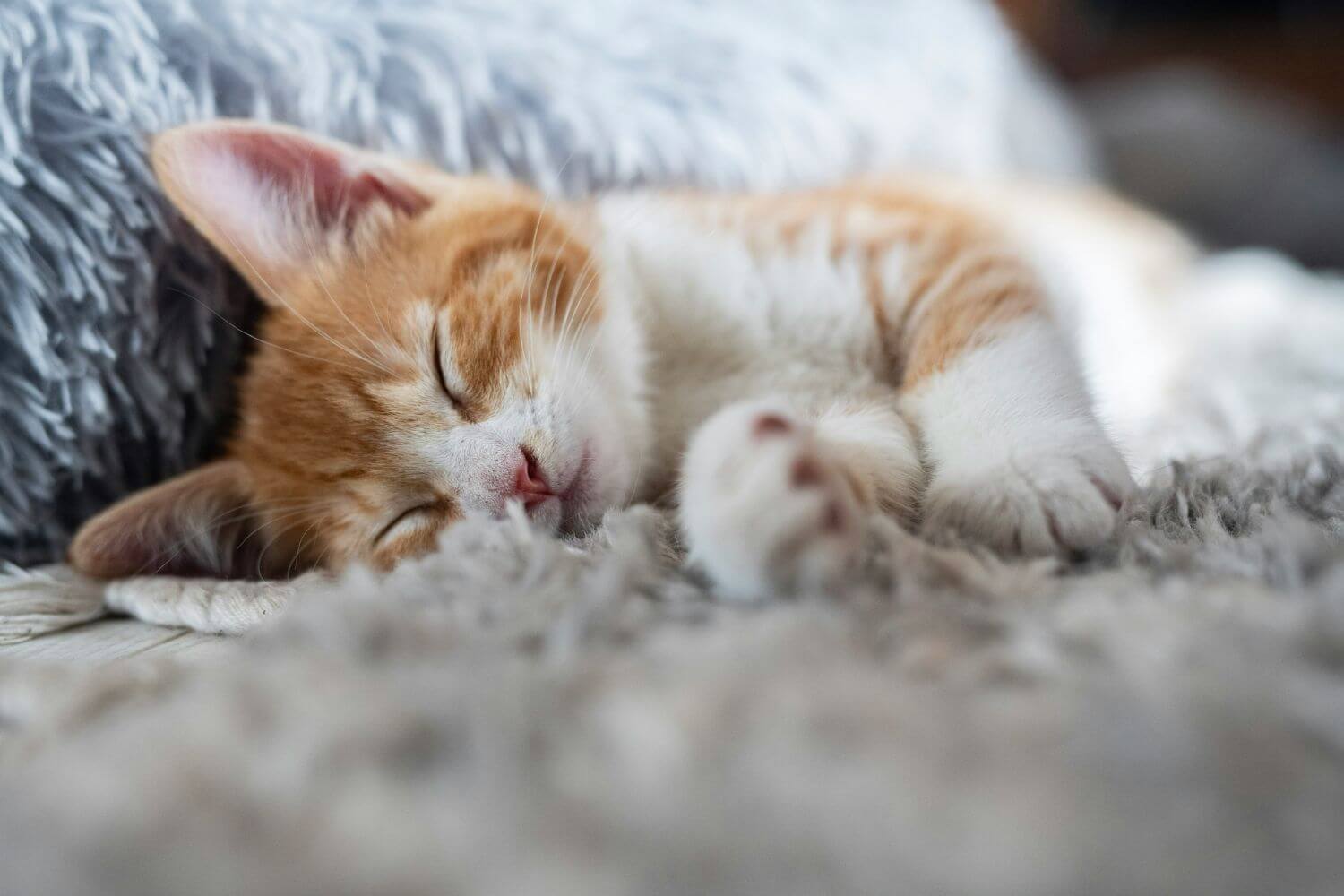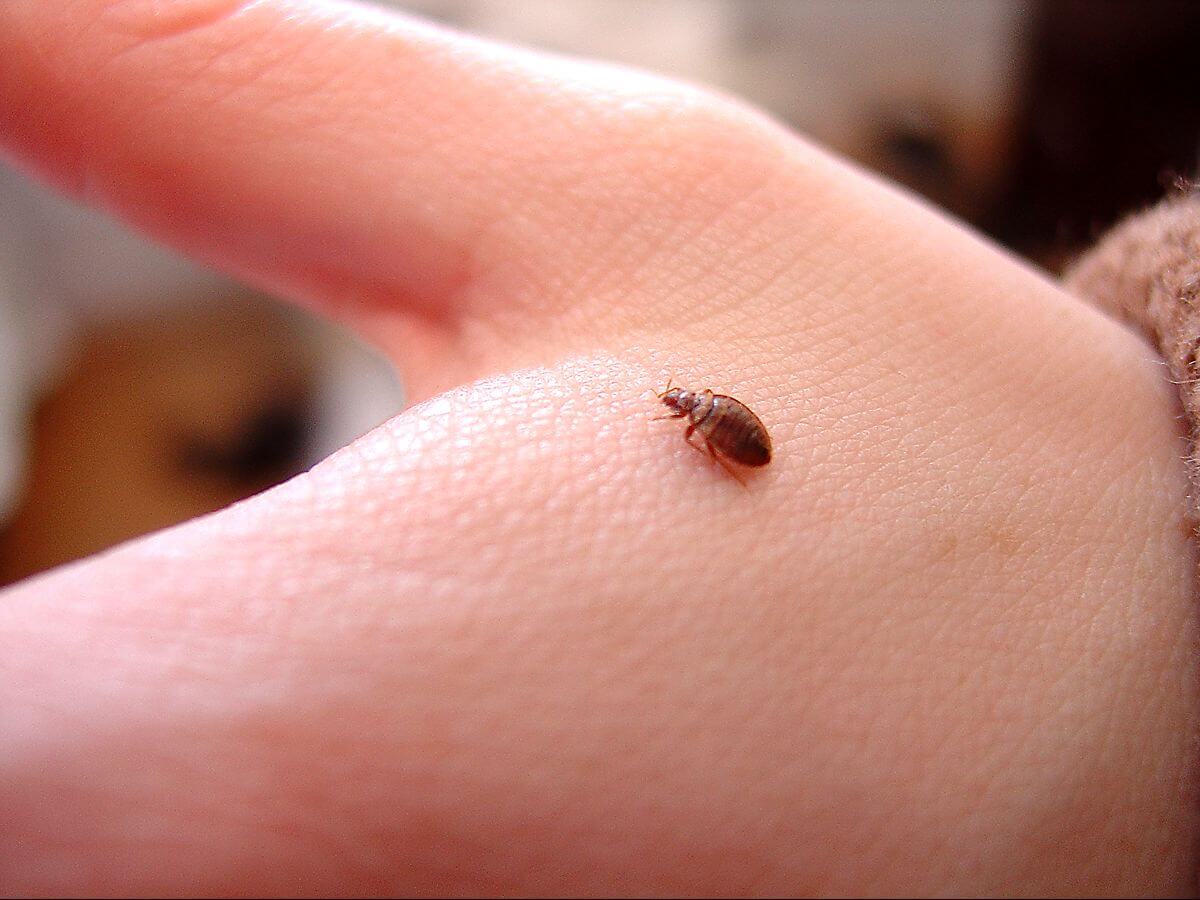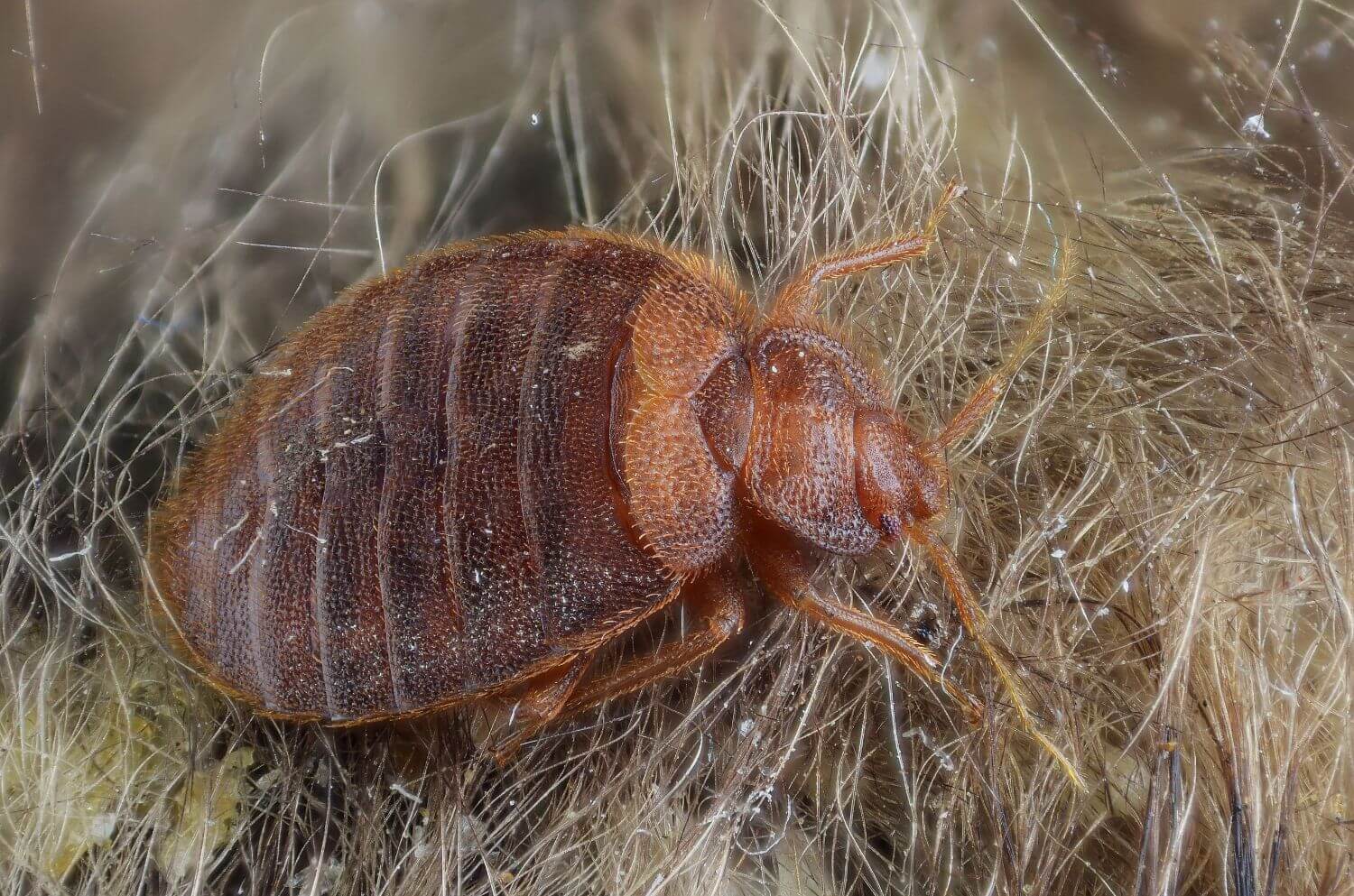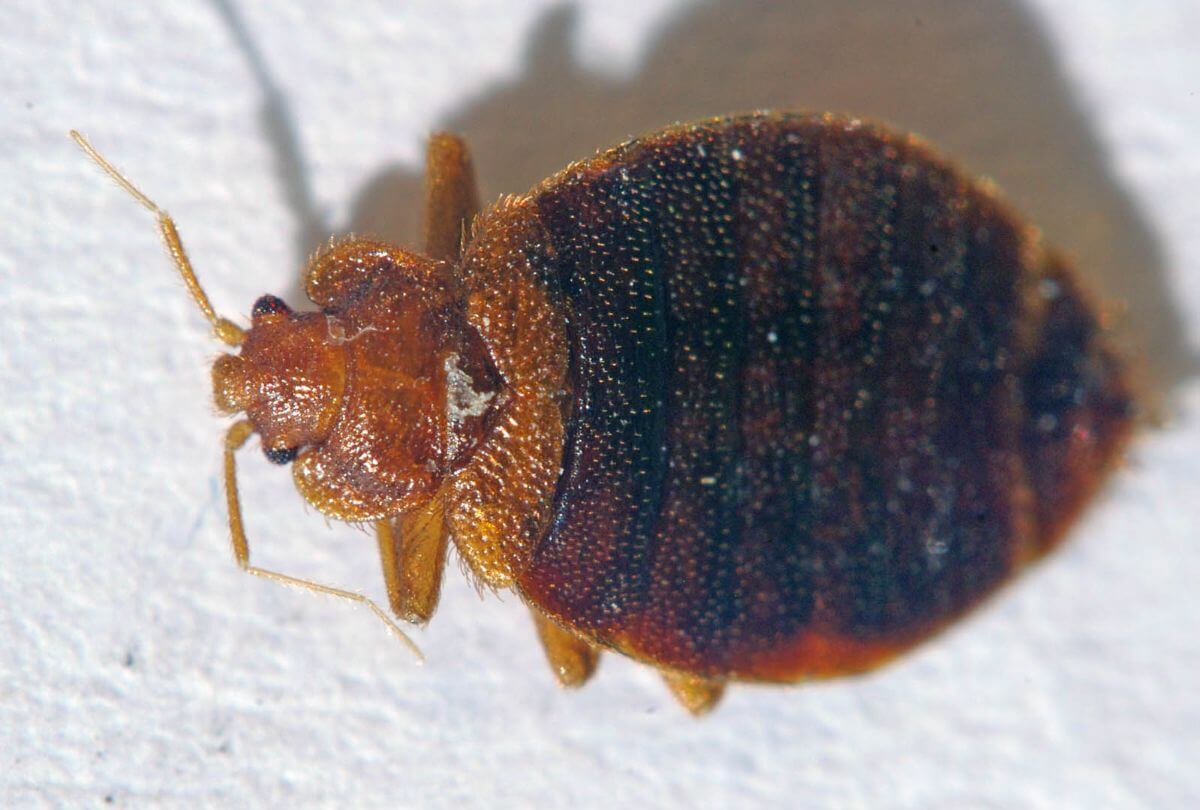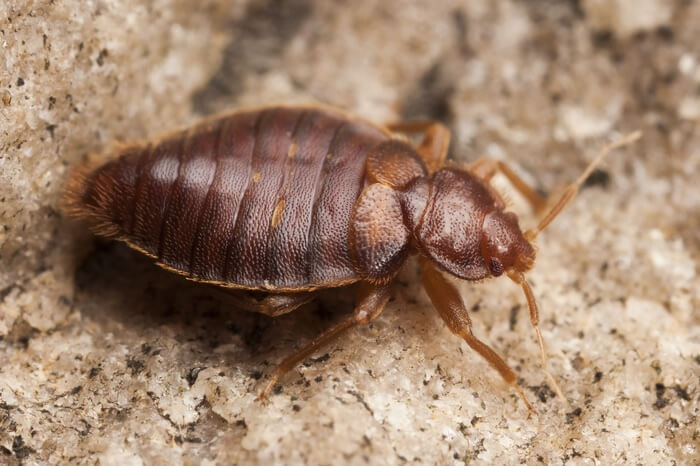Nobody wants to deal with bed bugs, but when you have a furry friend at home, the worry gets even bigger. Can these pesky little insects hurt your cat? The short answer is yes, bed bugs can bite cats, but the good news is that it doesn’t happen very often.
If you’re dealing with a bed bug problem or just want to keep your cat safe, this guide will tell you everything you need to know about bed bugs biting cats and what to do about it.
Do Bed Bugs Actually Bite Cats?
The simple answer is yes, but the full story is more complicated than that. Let’s look at what science tells us about when and why bed bugs choose to bite cats.
- Kill bed bugs and bed bug eggs
- Use spray as a spot treatment around bed frames, mattress seams/tufts/folds, and baseboards
- Kills even the toughest bed bugs
- The continuous spray Comfort Wand easily gets into hard-to-reach areas
What the Research Shows
Scientists have studied this exact question, and the results might surprise you. When researchers looked at bed bugs in homes with both people and pets, they found something interesting. Only 0.4% of the bed bugs had cat DNA in their stomachs, while 69.3% had human DNA. This means bed bugs biting cats is pretty rare compared to them biting people.
Bed bugs are picky eaters. They much prefer human blood over pet blood, but they’re not going to starve if a human isn’t available. Think of it this way: if bed bugs were at a buffet, humans would be the main course and cats would be the backup snack.
Why Cats Aren’t Their First Choice
There are several reasons why bed bugs biting cats isn’t their go-to meal plan. First, fur gets in the way. Bed bugs are tiny creatures, and thick cat fur makes it really hard for them to reach the skin. It’s like trying to eat through a thick blanket.
Cats also move around too much for bed bugs’ liking. These pests prefer to feed on sleeping, still targets. Cats tend to move around a lot more than sleeping humans, making them harder to bite. When bed bugs do manage to bite cats, they usually go for areas with less fur like the belly, ears, or legs where access is easier.
How to Tell If Your Cat Has Been Bitten
Spotting bed bug bites on cats can be tricky since they look similar to other insect bites. Here’s what to watch for on your cat’s skin and in their behavior.
What the Bites Look Like
Bed bug bites on cats look pretty similar to other insect bites, which can make them tricky to spot. The bites appear as small, red bumps on the skin and usually come in groups of two or three. They often show up on areas with less fur, and unlike flea bites, they don’t have a red dot in the center.
The tricky part is that bed bug bites can look a lot like flea or mosquito bites. The location and pattern can help you figure out what you’re dealing with. If you see bites in areas where your cat has less fur, especially if they’re grouped together, bed bugs might be the culprit.
Changes in Your Cat’s Behavior
Sometimes the way your cat acts can be the first clue that something’s wrong. Watch for more scratching than usual. If your cat is suddenly scratching a lot more, especially in specific spots, it could be bed bugs biting cats in those areas. You might also notice your cat having restless nights if they’re usually good sleepers, or excessive licking and grooming of certain spots more than normal.
Health Risks for Cats
Most bed bug bites won’t seriously harm your cat, but there are some complications to watch out for. Understanding these risks helps you know when to take action.
What You Should Worry About
While bed bugs biting cats isn’t usually dangerous, there are some things to keep an eye on. The main concern is itching and irritation. Just like with people, bed bug bites can be really itchy, and your cat might scratch so much that they create sores or damage their skin.
Secondary infections can happen when cats scratch bite areas too much. Bacteria can get into the wounds and cause problems. Look for signs like pus, extra redness, or areas that feel hot to the touch. Some cats might also have allergic reactions to bed bug bites, which can cause extra swelling, redness, or in severe cases, trouble breathing.
In extreme cases where there are tons of bed bugs biting your cat regularly over a long time, it could potentially cause anemia from blood loss. This is very rare but something to watch for if you notice your cat seems tired, has pale gums, or is breathing hard.
What You Don’t Need to Worry About
Here’s some good news: bed bugs don’t carry diseases that can hurt cats. Unlike ticks or mosquitoes, bed bugs aren’t known to spread any illnesses to pets or people. The bites might be annoying and itchy, but they won’t make your cat sick with a disease.
Treatment Options
If your cat has been bitten, there are several things you can do to help them feel better. Most treatment can be done at home, but sometimes you’ll need professional help.
What You Can Do at Home
If you think bed bugs have been biting your cat, here are some simple steps you can take. Start by gently washing the bite area with lukewarm water and mild soap that’s safe for animals. Don’t use human soap or harsh chemicals that could irritate your cat’s skin further.
You can apply a cold compress by wrapping an ice pack in a towel and holding it against the bite area for a few minutes. This can help reduce swelling and make your cat more comfortable. Ask your vet about pet-safe soothing lotions made for animals. Some contain aloe vera or other gentle ingredients that can help with itching. Keep your cat’s nails trimmed so there’s less damage if they do scratch the bites.
When to Call the Vet
Most of the time, bed bug bites aren’t serious enough to need a vet visit. But you should definitely call your veterinarian if your cat is scratching so much that they’re creating open wounds, if you see signs of infection like pus or extra redness, or if your cat has trouble breathing or shows signs of an allergic reaction.
You should also contact your vet if your cat seems really tired, has pale gums, or is breathing heavily, or if the itching is so bad that your cat can’t sleep or eat normally. Your vet might prescribe special creams, antihistamines, or other treatments to help your cat feel better.
- Kill bed bugs and bed bug eggs
- Use spray as a spot treatment around bed frames, mattress seams/tufts/folds, and baseboards
- Kills even the toughest bed bugs
- The continuous spray Comfort Wand easily gets into hard-to-reach areas
Prevention Tips
Stopping bed bugs before they become a problem is much easier than dealing with an infestation later. These steps will help protect both your cat and your home.
Protecting Your Cat
The best way to deal with bed bugs biting cats is to prevent it from happening in the first place. Wash your cat’s bedding regularly using hot water and high heat in the dryer. Bed bugs can’t survive high temperatures, so this kills any bugs or eggs that might be hiding in your cat’s favorite sleeping spots.
Vacuum frequently and pay special attention to areas where your cat likes to hang out. Don’t forget to throw away the vacuum bag right after cleaning. Check your cat’s sleeping areas regularly for signs of bed bugs like small blood spots, dark stains, or tiny bugs in your cat’s bed or favorite sleeping spots.
Protecting Your Home
Keeping bed bugs out of your house in the first place is way easier than getting rid of them later. Use special bed bug-proof covers on mattresses and box springs to prevent bugs from getting in or out. Reduce clutter around your home since bed bugs love to hide in piles of clothes, papers, or other stuff. Keeping your home tidy gives them fewer places to hide.
Be careful with used furniture and always check secondhand items carefully before bringing them home. Look for signs of bed bugs like dark stains, blood spots, or a sweet, musty smell. When traveling, check hotel rooms before settling in. Look at the bed and furniture for signs of bed bugs and keep your luggage in the bathroom until you’ve done your inspection.
Getting Rid of Bed Bugs Safely
If bed bugs have already made themselves at home, you’ll need to take action to eliminate them completely. The key is choosing methods that won’t put your cat at risk.
Pet-Safe Treatment Options
If you already have bed bugs in your home, getting rid of them needs to be your top priority. Professional heat treatment is usually the safest option for homes with pets. The exterminators heat your whole house to a temperature that kills bed bugs but won’t hurt your cat as long as your cat isn’t in the house during treatment.
If you hire a pest control company, make sure they know you have cats. Most treatments require keeping your cat away from treated areas for about 4 to 6 hours while chemicals dry. You can also use a steam cleaner on furniture, mattresses, and carpets. The heat kills bed bugs and eggs without using any chemicals that could hurt your cat.
What Doesn’t Work
Don’t waste your time or money on approaches that won’t help. Flea treatments won’t stop bed bugs since the sprays and medications that prevent fleas and ticks weren’t made to work against bed bugs. They might help a tiny bit, but they won’t solve a bed bug problem.
Your cat also won’t hunt them away. While cats might catch and kill a few bed bugs out of curiosity, they can’t control an infestation. Don’t count on your cat to solve this problem. Bug bombs usually don’t work well either since these products often can’t reach all the places where bed bugs hide, and they can be dangerous for cats to breathe in.
The Bottom Line
Bed bugs biting cats can happen, but it’s not something that occurs very often. These pests much prefer human hosts, but they will bite cats if they need to, especially in areas where your cat has less fur.
The most important thing to remember is that bed bug bites usually aren’t dangerous for cats. They might be itchy and annoying, but they won’t spread diseases or cause serious health problems in most cases. Focus on getting rid of the bed bug infestation rather than just treating the bites.
Prevention is always your best bet. Keep your cat’s bedding clean, vacuum regularly, and be careful about bringing used furniture into your home. If you do find bed bugs, work with a professional pest control company to get rid of them safely. With the right approach, you can protect both your home and your furry friend from these unwanted pests.

